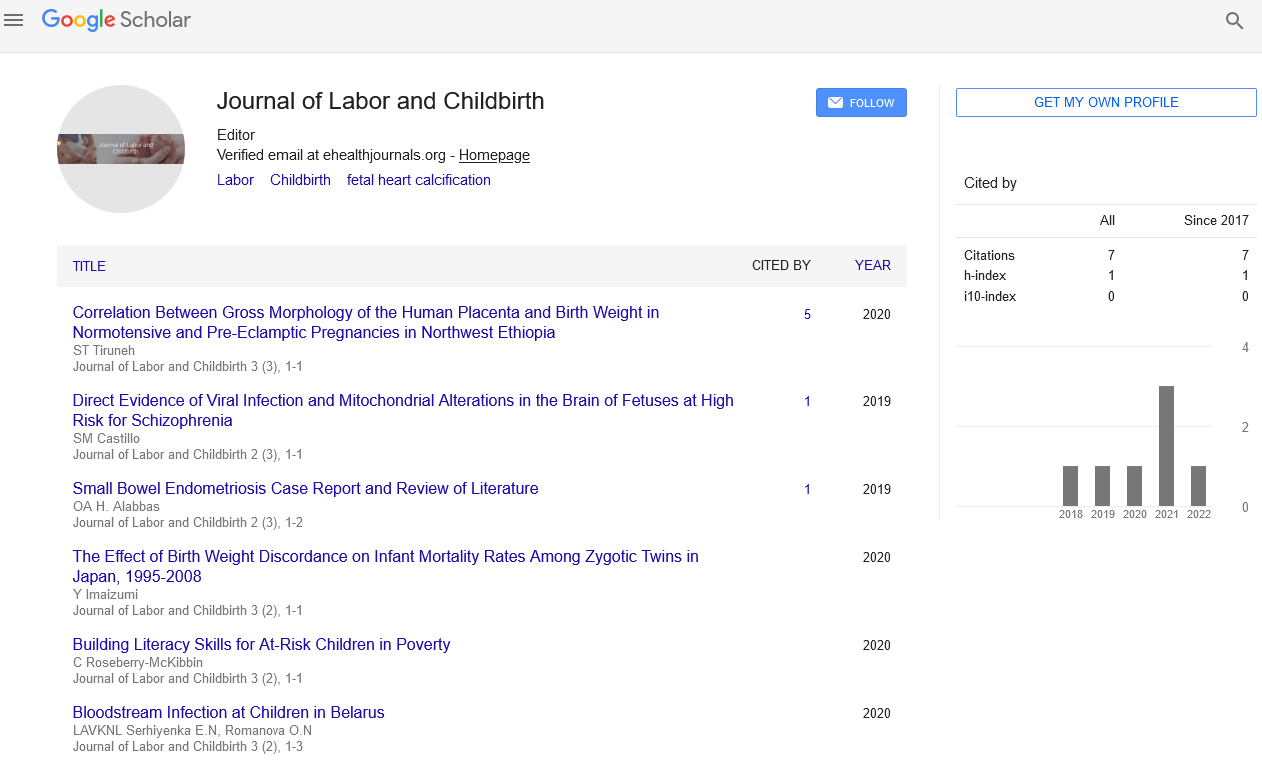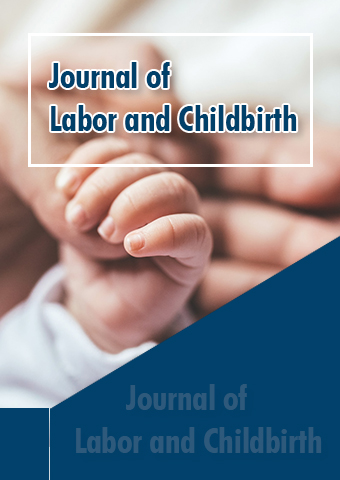Perspective - Journal of Labor and Childbirth (2024) Volume 7, Issue 3
The Timeless Bond: Exploring the Dynamics and Impact of Grandparental Childcare
- Corresponding Author:
- Chongde Lin
Department of Child Support Services,
Shaangi University,
Xi An,
China
E-mail: linchongde@123.net
Received: 14-May-2024, Manuscript No. jlcb-24-134893; Editor assigned: 17-May-2024, PreQC No. jlcb-24-134893 (PQ); Reviewed: 31-May-2024, QC No. jlcb-24-134893; Revised: 14-Jun-2024, Manuscript No. jlcb-24-134893 (R); Published: 22-Jun-2024, DOI: 10.37532/ jlcb.2024.7(3).219-220
Introduction
In today’s fast-paced world, where balancing work and family commitments is often a juggling act, the role of grandparents in providing childcare has become increasingly significant. Grandparental childcare, a timehonored tradition in many cultures, offers a unique and invaluable support system for families. This article delves into the dynamics, benefits and challenges of grandparental childcare, shedding light on its enduring importance in modern society.
Description
The dynamics of grandparental childcare
Grandparental childcare refers to the provision of care and support by grandparents to their grandchildren, ranging from occasional babysitting to more regular and involved caregiving. This arrangement is deeply rooted in familial ties and often arises out of necessity, as parents navigate the demands of work, education or other commitments.
One of the distinguishing features of grandparental childcare is the intergenerational bond it fosters. Through shared experiences, grandparents and grandchildren develop strong emotional connections that enrich their lives in profound ways. For grandparents, being actively involved in the lives of their grandchildren provides a sense of purpose and fulfillment, while grandchildren benefit from the wisdom, guidance and unconditional love of their elders.
Moreover, grandparental childcare offers a unique learning environment for children. Grandparents bring a wealth of knowledge and life experience to the table, offering valuable insights and perspectives that complement formal education. Whether imparting practical skills, sharing family stories or passing down cultural traditions, grandparents play a pivotal role in shaping the identity and values of their grandchildren.
Benefits of grandparental childcare
The benefits of grandparental childcare extend beyond the familial sphere, with significant implications for both children and parents alike. From a practical standpoint, relying on grandparents for childcare can alleviate financial strain associated with professional childcare services. With rising costs of daycare and preschool programs, many families find solace in the cost-effective option of grandparental care.
Moreover, grandparental childcare often provides a more personalized and nurturing environment for children. Unlike formal childcare settings, where children may be one among many, grandparental care offers individualized attention and affection. This can have a positive impact on children’s emotional well-being, fostering a sense of security and belonging.
For parents, the support of grandparents in childcare can offer much-needed respite from the demands of parenting and career responsibilities. Whether it’s allowing parents to pursue professional opportunities, attend to personal needs, or simply enjoy moments of relaxation, the involvement of grandparents can help alleviate parental stress and burnout.
Additionally, grandparental childcare promotes intergenerational solidarity within families. By bridging the generation gap and fostering meaningful connections between different age groups, it cultivates a sense of belonging and cohesion that strengthens family bonds.
Challenges and considerations
While grandparental childcare offers numerous benefits, it is not without its challenges and considerations. One common concern is the potential strain it may place on the health and well-being of grandparents, particularly as they age. Caring for young children can be physically demanding and grandparents may face limitations due to age-related issues such as mobility or chronic health conditions.
Furthermore, the dynamics of grandparental childcare can sometimes lead to conflicts or tensions within families. Differences in parenting styles, expectations or boundaries may arise, requiring open communication and compromise to navigate effectively. Additionally, grandparents may struggle to balance their caregiving responsibilities with other commitments, such as work or personal interests.
Another consideration is the potential impact of grandparental childcare on the relationship dynamics between parents and grandparents. While many families cherish the support and involvement of grandparents, others may experience feelings of dependency or interference. Clear communication and mutual respect are essential in maintaining healthy boundaries and fostering positive relationships among all family members.
Moreover, in some cases, reliance on grandparental childcare may perpetuate gender disparities in caregiving responsibilities. Research indicates that grandmothers, in particular, are often expected to assume primary caregiving roles, which can have implications for their autonomy and well-being.
Despite these challenges, the benefits of grandparental childcare often outweigh the drawbacks for many families. By recognizing and addressing potential concerns proactively, families can optimize the experience of grandparental care for both children and grandparents.
Tips for successful grandparental childcare
Based on the experiences of grandparents and experts in the field, here are some practical tips for navigating the grandparental childcare journey:
Establish clear expectations: Communicate openly with the parents about expectations, schedules and preferences regarding childcare arrangements. Clarify roles and responsibilities to avoid misunderstandings and conflicts.
Prioritize safety and well-being: Create a safe and nurturing environment for grandchildren, taking into account their physical, emotional and developmental needs. Stay informed about health and safety guidelines and address any concerns promptly.
Conclusion
Grandparental childcare occupies a cherished place in the fabric of family life, offering a wealth of benefits for children, parents and grandparents alike. Through nurturing relationships, shared experiences and intergenerational bonds, grandparents play a vital role in shaping the lives of their grandchildren.
As society continues to evolve, the importance of grandparental childcare remains steadfast, serving as a testament to the enduring strength of familial ties. By fostering mutual support, understanding and appreciation, families can harness the power of grandparental care to create nurturing environments where children thrive and relationships flourish.

